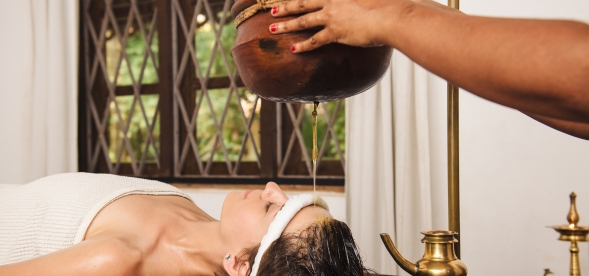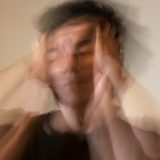What is Ayurveda?

The body and mind are interconnected and constantly influence each other. Emotional stress, for example, can cause physical symptoms such as headaches or digestive problems, while physical pain can exacerbate emotional tension. As we are increasingly dominated by fast-paced living and stress in our lives nowadays, many people are turning more and more to a holistic approach to well-being, which addresses both the body and the mind. By treating both aspects of human well-being, we can gain a deeper understanding of the causes of health problems.
One such approach/method that is gaining popularity is Ayurveda. This is an ancient healing system that originated in India over 5000 years ago. Translated from Sanskrit, “Ayur” means life and “Veda” means knowledge. Ayurveda thus means the knowledge of life.
Although Ayurveda is not very well known in the Western world, it is the only non-allopathic medical system fully accepted and recognized by the World Health Organization (WHO). In other words, Ayurveda is the only alternative healing system recognized by the WHO. The recognition of Ayurveda by the WHO means that it is considered a valuable source/method of healthcare.
It is important to note, however, that recognition by the WHO does not necessarily mean that all aspects of Ayurveda have been scientifically proven or that it is considered a replacement for conventional medical treatments. Rather, it emphasizes the importance of preserving and integrating traditional medical practices into the broader healthcare system, especially in cultures where these practices are deeply rooted.
Meeting in the Middle
To get the best of both worlds, a collaboration between Eastern and Western medicine would be beneficial, in my opinion. Combining conventional Western medical approaches with complementary and alternative therapies, such as acupuncture, herbal medicine, and Ayurveda, is called Integrative Medicine. By integrating these approaches, patients can benefit from a wider range of treatments that address both physical and mental aspects of health.
Turning the Tide
As a skin therapist, I help people with skin problems achieve healthy, even skin. I’ve been doing this for 4 years. And in those 4 years, my biggest insight has been: skin problems often stem from stress. In such cases, an approach focused only on skincare and treatments is often not sufficient, and results lag behind. Much to the deep frustration of clients.
A holistic approach to (health) issues has caught my attention for years and has led me to decide to pursue basic training in Ayurveda. Perhaps this will enable me to inspire, inform, and provide tips and advice on a broader level!
Stay tuned!
Love, Fabienne

